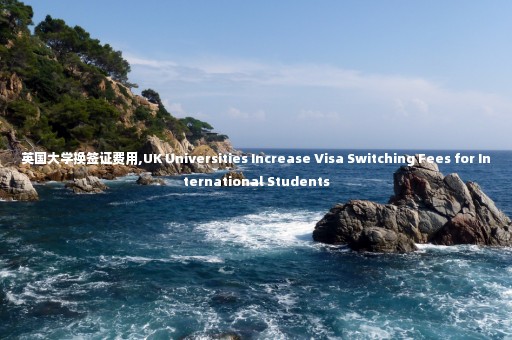UK Universities Increase Visa Switching Fees for International Students
As if the already high tuition fees weren't enough, international students at universities in the United Kingdom have now been hit with yet another expense: increased visa switching fees. This means that students who want to switch from a Tier 4 student visa to a Tier 2 visa (which allows them to remain in the UK for work after graduation) will now have to pay more to do so.
The Details

The previous cost for switching from a Tier 4 visa to a Tier 2 visa was £389. The new cost, which came into effect on October 1, 2020, is now £475. This is an increase of over 20%, and it has understandably caused frustration among international students who are already struggling to pay their tuition fees.
The increase in fees has been implemented due to the UK government's desire to reduce net migration numbers. The government has set a target of reducing net migration to less than 100,000 people per year. In order to achieve this target, they have made it more difficult for international students to remain in the UK after they graduate. By increasing the cost of switching visas, the hope is that fewer students will apply to stay in the UK.
The Impact on International Students
The impact of the increase in visa switching fees on international students cannot be underestimated. For many students, the added cost will make it even more difficult to make ends meet whilst studying in the UK. With the COVID-19 pandemic already causing financial hardship for many, the increased fees will only exacerbate an already difficult situation.
In addition, the increase in fees could also have wider implications for UK universities. The introduction of higher visa switching fees could make the UK a less attractive destination for international students, who contribute significantly to the UK economy. If fewer students choose to study in the UK, this could affect university revenue and have a negative impact on the wider national economy.
Possible Solutions
Some solutions have been proposed to address the issue of increasing visa switching fees for international students. One possible solution is for universities to offer more support to international students who want to remain in the UK after they graduate. This could include assistance with visa applications and job placements.
Another solution could be for the UK government to reconsider its immigration policy. Instead of making it more difficult for international students to remain in the UK after they graduate, the government could offer more support to those who want to stay. This could include easier access to work visas and a reduction in visa fees.
Conclusion
The increase in visa switching fees for international students at UK universities is a significant issue that cannot be ignored. It has the potential to cause financial hardship for students and could have wider implications for the UK economy. It is important that universities and the UK government work together to find a solution that benefits international students and ensures that the UK remains an attractive destination for those looking to study and work in the country.

